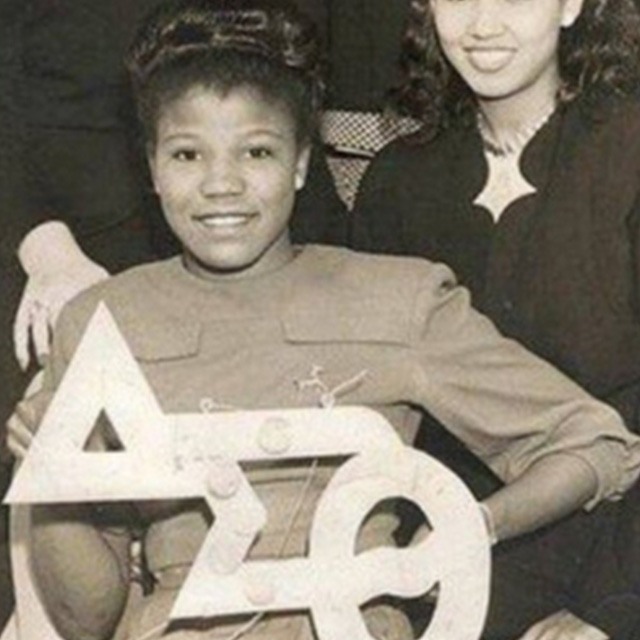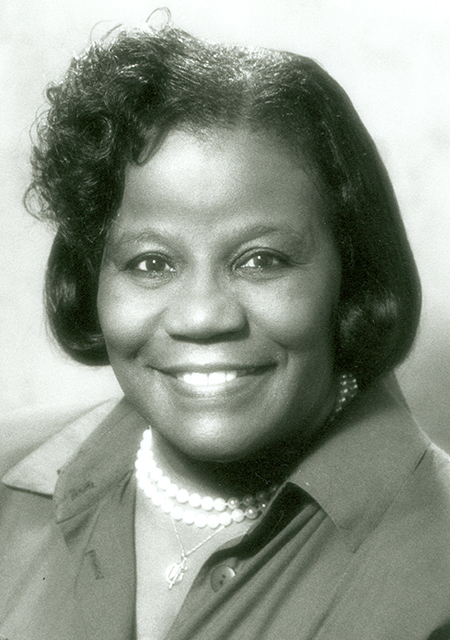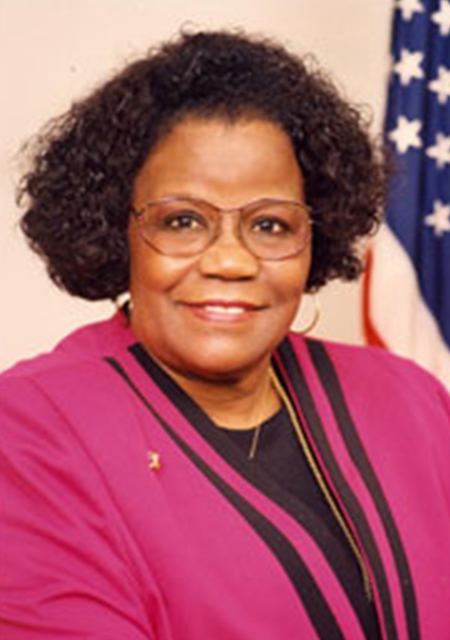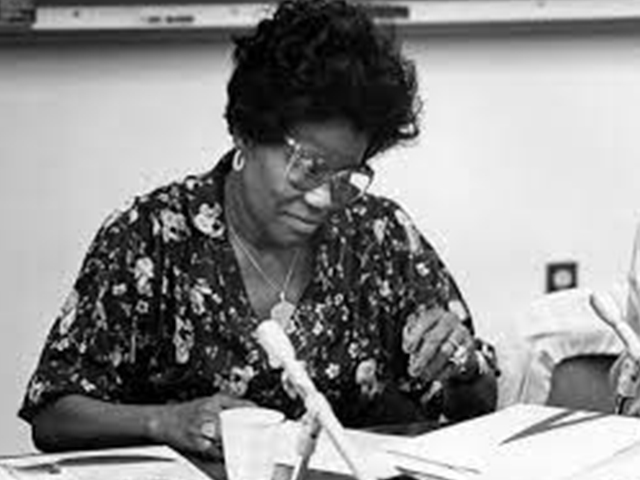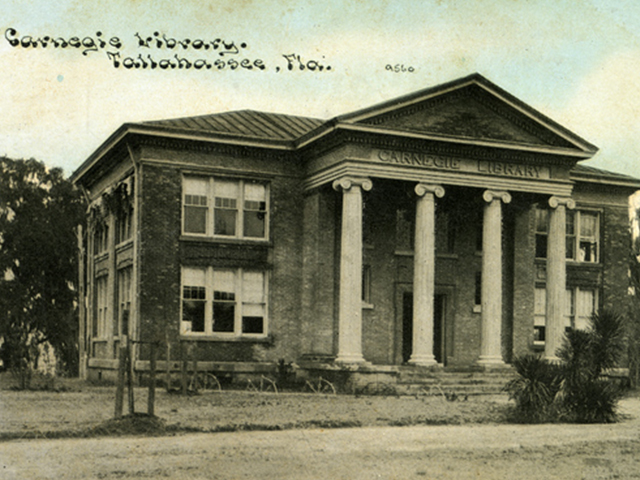Founding & History of The Meek-Eaton Black Archives Research Center & Museum
In 1971, the Florida Legislature mandated the creation of a repository to “serve the state by collecting and preserving source material on and about African Americans from ancient to present times.” This mandate gave birth to what would later become the Black Archives Research Center and Museum.
The Donation of Carnegie Library
- The roots of the Black Archives extend back to 1905 when a fire destroyed Duval Hall,
which housed the school’s first library. Nathan B. Young, The school’s second president, requested help from the famous Andrew Carnegie (b. 1835 – d. 1919), a prominent business magnate, philanthropist, and the founder of the Carnegie Steel
Company (U.S. Steel). He gladly donated $10,000 to construct a new library for the
Florida State College for Colored Students (present-day Florida A&M University) in
1906.
This new two-story brick facility officially opened its doors to the public in 1908. Notably, it was the first Carnegie Library built on a black land-grant college campus. Equipped with modern amenities such as electricity, indoor plumbing, and city-supplied water, the library served various purposes over the years, including being an art gallery and a religious center in its later years. 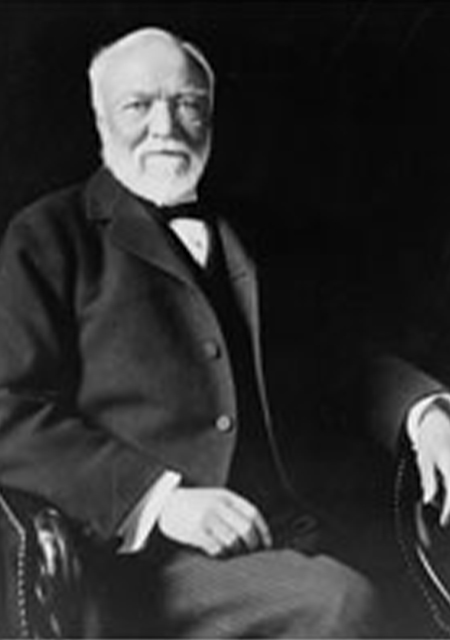
The Vision: How It Started
-
The Honorable Joe Lang Kershaw (b. 1911 – d. 1999) (D-Miami), a Florida A&M College graduate, made history as the first African American elected to serve in the Florida Legislature since the Reconstruction era. He rendered 14 years of service (1968-1982).
Joe Lang Kershaw and his legal assistant Arthenia L. Joyner, who earned her bachelor's degree in political science and juris doctor degree from Florida A&M University, would play a pivotal role in maneuvering Florida Statute 241.477 through the Legislature, leading to the establishment of the Black Archives In 1971.
In recognition of his efforts, a special room on the first floor of Carnegie Library, the home of the Black Archives, was designated as the Rep. Joe Lang Kershaw FAMUANA Room.
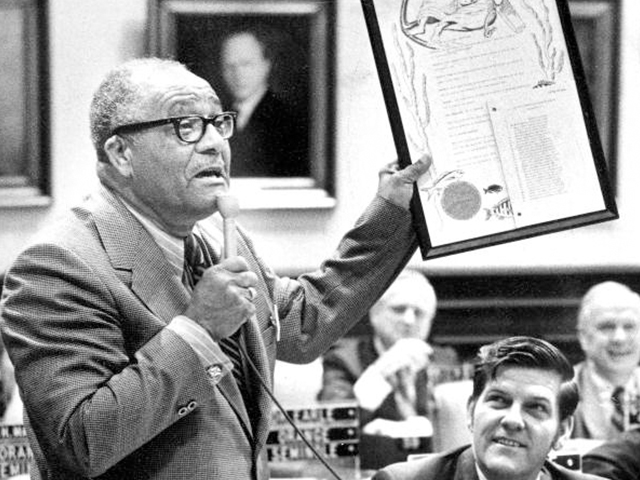
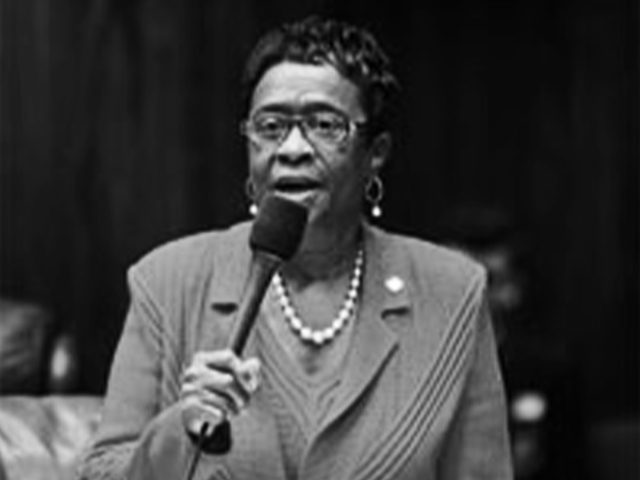
More About Kershaw & Joyner
Joe Lang Kershaw (b. 1911 – d. 1999) and Arthenia L. Joyner have made lasting contributions to both Florida's political landscape and the legacy of Florida A&M University. Explore their remarkable journeys in greater detail.
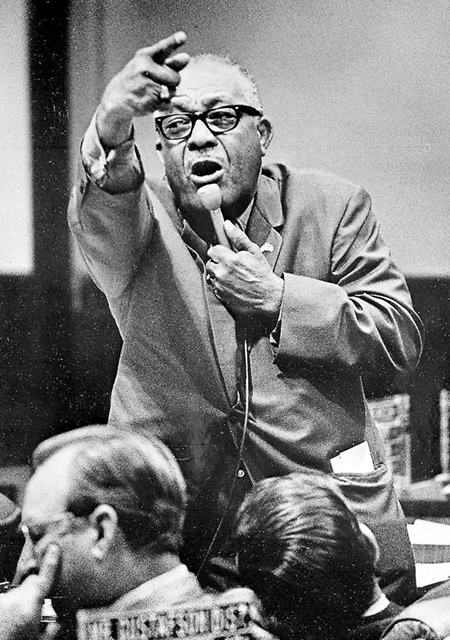
Joe Lang Kershaw (b. 1911 – d. 1999) (D-Miami) was born in Live Oak Florida. He made history as the first African American elected to serve in the Florida Legislature since the Reconstruction era, and was the lead sponsor of the bill that created the Black Archives.
In the early 1930s, while enrolled at Florida A&M College, Kershaw worked as a part-time janitor at the Florida Capitol complex. While there, he would frequently stand behind the speakers podium, and pretend he was addressing the Florida House of Representatives. During his time as a student, he joined the Kappa Alpha Psi fraternity, ultimately becoming a lifelong member. He Graduated in 1935 with a degree in history.
Following his graduation, Kershaw worked as a civics teacher in a junior high school in Coral Gables in Dade County (renamed Miami-Dade County in 1997). He would return to Florida A&M to achieve his Master of Education degree. He was a member of the Holy Name Society, the Knights of Columbus, and the Miami Economic Advisory Board while he lived in Miami.
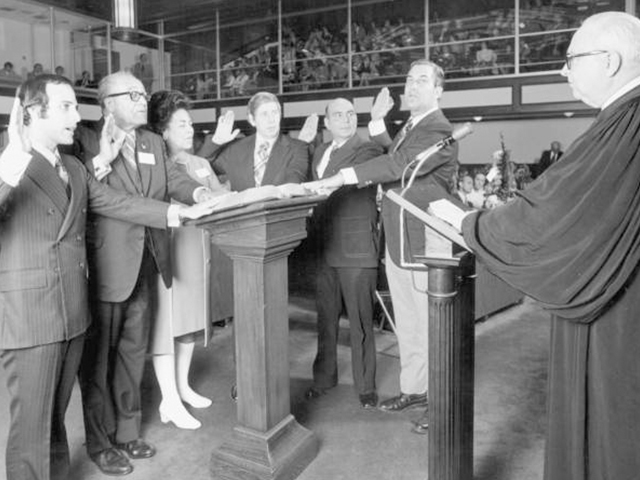
In November 1968, Kershaw, who had devoted decades to his career in education, earned a seat in the Florida House of Representatives to represent the 99th district, which at the time covered mostly Dade County. Upon being elected, he made history as the first African-American elected to serve in the Florida Legislature since the Reconstruction era.
In addition to serving as chairman of the Elections Committee, Kershaw also put forth the legislation that established the Florida Human Rights Commission. In 1971 Kershaw successfully pushed Florida Statute 241.477 through the legislature, resulting in the establishment of the Black Archives at Florida A&M University. He rendered 14 years of service in the Florida Legislature from 1968 to 1982.
Joe Lang Kershaw Sr. passed away in 1999.
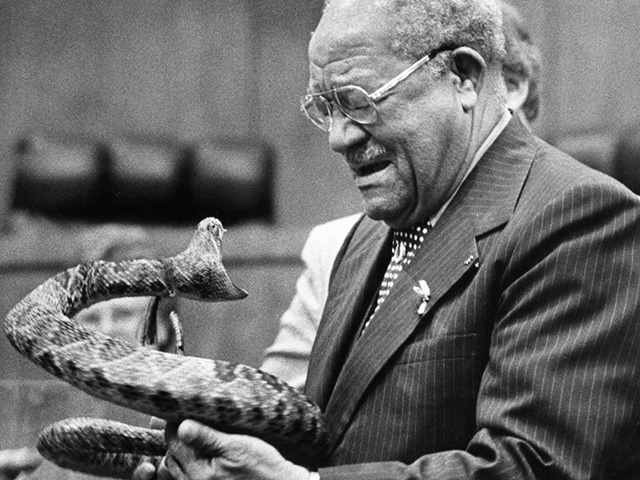
Joe Lang Kershaw, with tears in his eyes, receives a special gift from his fellow House members during a recognition ceremony on the House floor in 1981: a stuffed rattlesnake, the mascot of his Alma Mater, Florida A&M University. His colleagues are honoring him for his dedicated years of service since 1968. - Photographed on May 8, 1981. by Foley, Mark T.
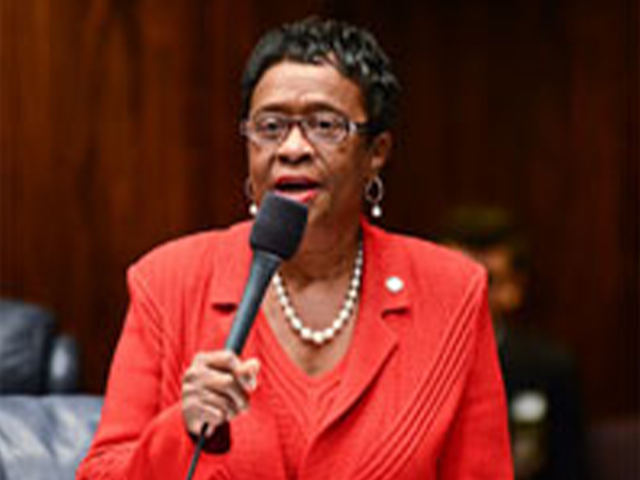
Florida State Senator Arthenia L. Joyner (D-Tampa) earned a bachelor’s degree in political science and a juris doctor degree from Florida A&M University.

While attending FAMU, she was arrested twice during protests to desegregate Tallahassee movie theaters. She also participated in the first civil rights demonstrations in Tampa, and was arrested in Washington, D.C. for her participation in civil rights activities.
In 1969, she served as a legal assistant to the Honorable Joe Lang Kershaw, the first African-American member of the Florida Legislature since Reconstruction and lead sponsor of the bill that created the Black Archives. Joyner has practiced law for more than 45 years.
She was first elected to the Florida House of Representatives in 2000 and later to the Florida Senate in 2006.
Today, she serves as the Florida Senate Democratic Leader for 2014-2016, making her the first black woman and the second woman ever to hold the position.
Til today, she remains the longest practicing Black woman lawyer in the history of Florida.
The Founding of the Black Archives
-
In 1976 Black Archives Research Center and Museum was officially established by Dr. James N. Eaton (b. 1930 – d. 2004), a history professor at Florida A&M University (FAMU).
It was decided that the historic Carnegie Library on FAMU's campus would gain a new significance by becoming the founding home of the Black Archives.
The center would go on to be recognized by being listed on the National Register of Historic Places in that same year.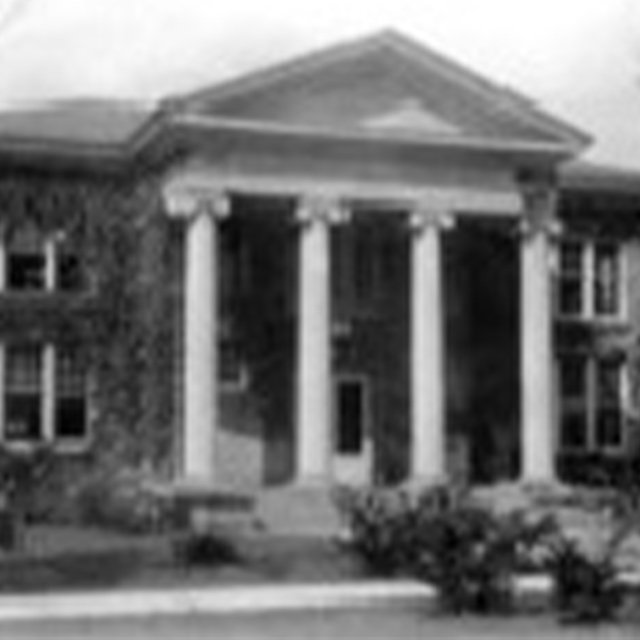
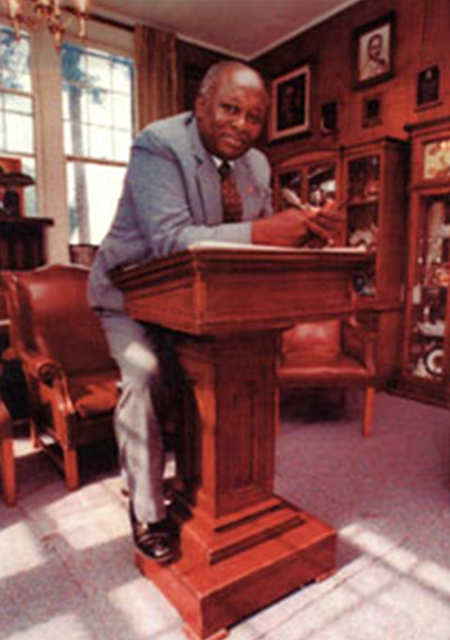
[ Dr. James N. Eaton (1930-2004), founder and first director of the Black Archives, pictured in historic Carnegie Library posed behind an antique lectern used by famous guests visiting the campus of Florida A&M University. These special visitors included leaders such as Booker T. Washington, Mary McLeod Bethune, James Weldon Johnson, and Thurgood Marshall. ]
More About Dr. James N. Eaton
Delve deeper into the life and work of Dr. James Nathaniel Eaton, Sr., a tireless advocate for African-American history, education, and cultural preservation, whose impact continues to inspire and educate generations.
"African American History is the history of America "
- James N. Eaton, Sr, Founder of The Meek-Eaton Black Archives
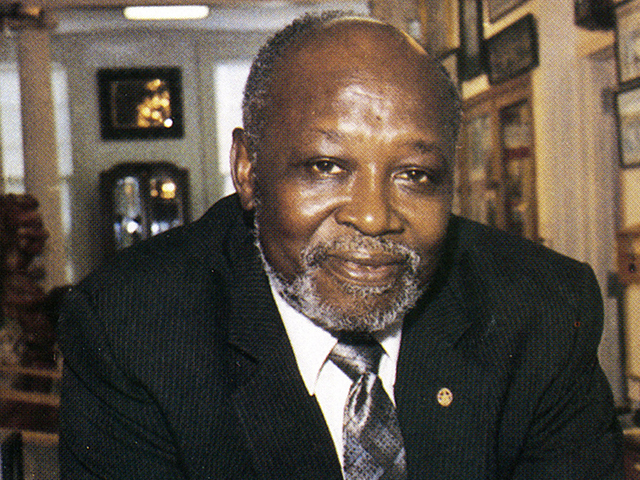
Early Life and Education
James Nathaniel Eaton, Sr., was born on September 14, 1930, in Richmond, Virginia. His pursuit of higher education led him to Fisk University, where he earned his Bachelor of Arts (B.A.) degree in 1952, followed by his Master of Arts (M.A.) in 1959. [He would also later be conferred with an honorary Doctor of Humane Letters (L.H.D.) degree from Florida Memorial College in 1997 in recognition of his significant scholarly achievements.]
Academia and Leadership
After completing his post-graduate studies, James N. Eaton's career would be a multi-faceted journey. Initially, he served as a history professor at Miles College in Fairfield, a suburb of Birmingham, Alabama, from 1953 to 1955. In 1957, he transitioned to the role of assistant principal at the Hanover School for Boys in Richmond, Virginia. In 1958, He ultimately left the position to join Florida A&M University as a professor of history. During his time at FAMU, Eaton steadily progressed from being an instructor to becoming the chairman of FAMU’s Department of History, Geography, and African-American Studies, where he served from 1969 to 1977. Simultaneously, he worked as an adjunct professor of history at Florida State University from 1970 until 1980.
Founding of the Archives
In 1975, James N. Eaton spearheaded the effort that ultimately gave rise to the creation of FAMU’s Black Archives. By 1976, the ‘Black Archives Research Center and Museum’ came into existence, and Eaton was recognized and appointed as its inaugural archivist, curator, and director.
For the next three decades, he helped amass a collection of memorabilia and printed records that now comprise one of the region’s most extensive collections of first-source material relating to the history, culture and contributions of people of African descent living in the United States. The diverse collection was built on the premise of his personal motto that “African-American history is the history of America.”
Legacy
Dr. Eaton gained national and international recognition for his work ands expertise in American, African-American, Southern, and Russian history. He was awarded "Most Outstanding Teacher of the Year" 25 times during his 45-year tenure at FAMU. Anyone fortunate enough to attend his classes or listen to one of his lectures was considered “Eatonized.”
In 1978, Dr. Eaton was named FAMU’s first “Distinguished Professor.” Notably, Dr. Eaton played a pivotal role in securing the historic Carnegie Library’s inclusion on the 'National Register of Historic Places' during its inaugural year as the permanent home of the black archives. Thanks largely to his efforts, FAMU’s campus, and its surrounding community, were designated a National Historic District in 1998.
In 1981, Dr. Eaton, with a group of dedicated community members, co-founded the Friends of the Black Archives, a non-profit volunteer group dedicated to the promotion and preservation of African-American history. It was founded to support and incite greater interest in the center and its public services. In 1983, the 'James N. Eaton, Sr. Endowment' was established to render further support to the museum and archives.
Awards and Recognition
The noted archivist, curator, educator, and historian was the recipient of hundreds of accolades and awards. Some of his most prestigious honors included being named “Professor of the Year” in 1991 by Florida’s Council for Advancement and Support of Education (CASE).
In 1997, Florida Memorial College bestowed upon him the Doctorate of Humane Letters. After nearly five decades of dedicated scholarship and public service, Dr. Eaton announced his retirement in 2003. That same year, the university bestowed upon him the title of Professor Emeritus.
Additionally, in 2003, in recognition of his dedication in the areas of education, American, African-American, and world history, a bill was introduced in the Florida Legislature that proposed naming the Southeastern Regional Black Archives Research Center and Museum expansion facility the Meek-Eaton Building in honor of Eaton and his close friend and colleague, U.S. Congresswoman Carrie P. Meek (b. 1926 – d. 2021), who helped secure funds for the new facility.
The Expansion of the Black Archives
- U.S. Congresswoman Carrie P. Meek (b. 1926 – d. 2021) [D-Florida], a six-term U.S. Congresswoman and 1946 FAMCEE graduate, and a passionate champion
for marginalized communities, was a vanguard in securing funds to expand the Black
Archives facility. Meek was the first African American women to be elected to the
Florida senate. She was a 1992 Florida Women's Hall of Fame inductee.
A close friend and colleague of Dr. Eaton, in 2006, the Florida Legislature co-named the new facility in her honor, resulting in its current name: The Meek-Eaton Black Archives.
Representative Meek once wore this prophetic t-shirt in the House chamber reading "A woman's place is in the House and the Senate". 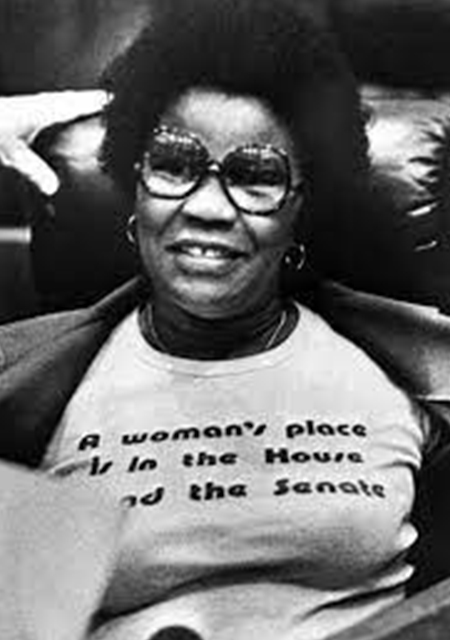
More About Carrie P. Meek (b. 1926 – d. 2021)
U.S. Congresswoman Carrie P. Meek enjoyed a historic trailblazing career as a public servant, college administrator, and educator.
U.S. Congresswoman Carrie P. Meek enjoyed a historic trailblazing career as a public servant, college administrator, and educator.
Early Life and Education
Born on April 29, 1926, in Tallahassee, Florida, Carrie Pittman Davis Meek was the daughter of sharecroppers Willie and Carrie Pittman and granddaughter of a slave.
Growing up in segregated Tallahassee as the youngest of 12 siblings, she excelled both academically and athletically. Meek attended Florida A&M University (formerly known as Florida A&M College for Negroes), where she not only thrived as an honors student but also distinguished herself as a star athlete in track and field. During her college years, she became a Delta Sigma Theta sorority member. In 1946, she graduated with a bachelor's degree in biology and physical education.
During an era when Black individuals were barred from pursuing graduate education in Florida, the state sponsored her tuition to attend graduate school in the northern United States. In 1948, she earned a Master of Science (M.S.) degree in public health and physical education from the University of Michigan, marking the beginning of her journey towards a remarkable career in public service.
Higher Education and Professional Journey
Following her graduation from the University of Michigan, Carrie P. Meek's Academic journey began as a teacher at Bethune-Cookman University (formerly Bethune-Cookman College) in Daytona Beach, Florida. Later, she returned to her alma mater, Florida A&M University, where she continued teaching.
In 1961, Meek relocated to Miami, Florida, where her professional contributions expanded to encompass roles as a professor, administrator, and special assistant to the vice president at Miami-Dade Community College (now known as Miami-Dade College).
Meek's impact extended beyond the classroom. She played an instrumental role in the integration efforts. Her dedicated administration and advocacy essentially led to Miami-Dade Community College's desegregation in 1963, marking a significant milestone in pursuing educational equality.
Political career
Carrie P. Meek started her political career in 1979, motivated by a tragic car accident that claimed the life of Gwen Cherry, the first African-American woman legislator in Florida. In a courageous move, Meek entered the special election to fill Cherry’s vacant seat. Her determination paid off when she secured a seat in the Florida House of Representatives. During her tenure as a state representative, Meek made notable contributions, including the introduction of a bill that criminalized stalking, addressing a critical issue in her community. Her service in the House continued until 1982.
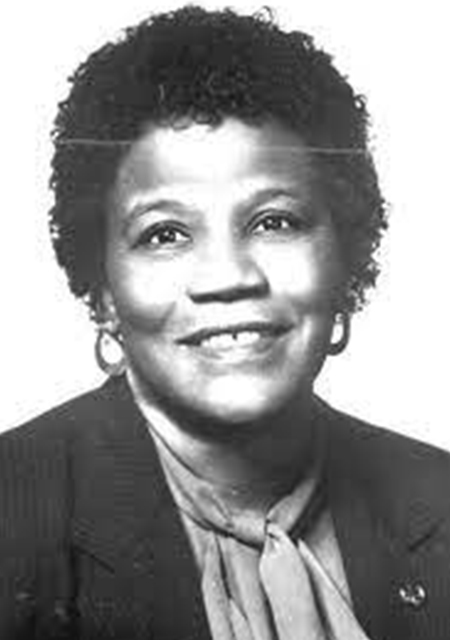
Historic State Senate Win
Later that same year, in 1982, Meek pursued a newly established state senate seat in northern Dade County. Her historic win made her the first African-American woman elected to the Florida State Senate. In her role as a state senator, Meek served on the education appropriations subcommittee. Her legislative endeavors resulted in the creation of thousands of affordable rental housing units, addressing a pressing need within the community. After 14 years in the Florida Legislature, Meek would set her sights on a congressional seat in 1992.
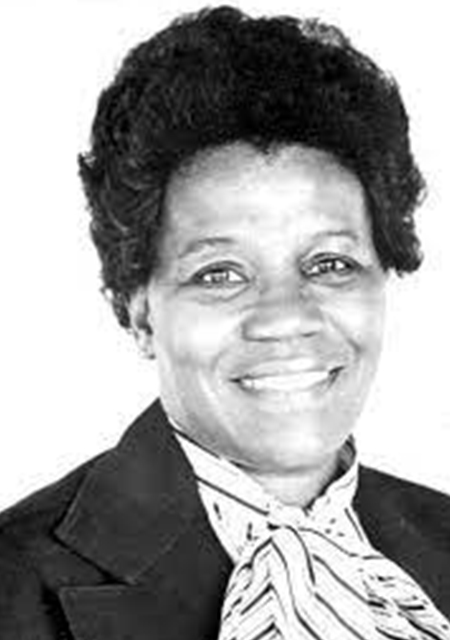
In 1992, a court-mandated redistricting plan established congressional seats specifically designed to elect black representatives in accordance with the Voting Rights Act. Meek ran for the 17th district in northern Dade County and successfully secured a seat in the U.S. House of Representatives that year. This historic election made her the first black lawmaker to represent Florida in Congress since the post-civil war reconstruction era.
Meek was a strong advocate for underserved populations. Upon taking office, she directed her efforts toward economic development, healthcare, education, and housing. Meek spearheaded legislation in Congress to enhance Dade County’s transportation infrastructure, airport, and seaport. She also built a new family and childcare center in the northern part of the county.
Carrie P. Meek never lost a race for re-election to the U.S. House of Representatives. However, she decided not to pursue re-election in the 2002 race and officially retired from her House position at the conclusion of her term in January 2003. Following her retirement, her son, Kendrick Meek, ran for her vacated seat and successfully succeeded her.
Later Life & Legacy
Carrie P. Meek enjoyed retired life by returning to Dade County, where she continued to dedicate her time and service to the Carrie P. Meek Foundation, a non-profit corporation focused on improving the lives of individuals in Miami-Dade County and throughout the broader community of Florida.
Meek was recognized with numerous accolades and distinctions throughout her career. Among her notable honors, she was awarded honorary Doctor of Laws degrees by Florida A&M University, the University of Miami, Barry University, Florida Atlantic University, and Rollins University.
Carrie P. Meek passed away in her home in Miami on November 28, 2021, at the age of 95.
Carrie Meek - Deep Roots: Honoring the Past, Celebrating the Present, Building for
the Future | FAMU Forward
FAMU Mourns the Loss of Alumna Former Congresswoman Carrie Meek | FAMU Forward
The Black Archives Today
-
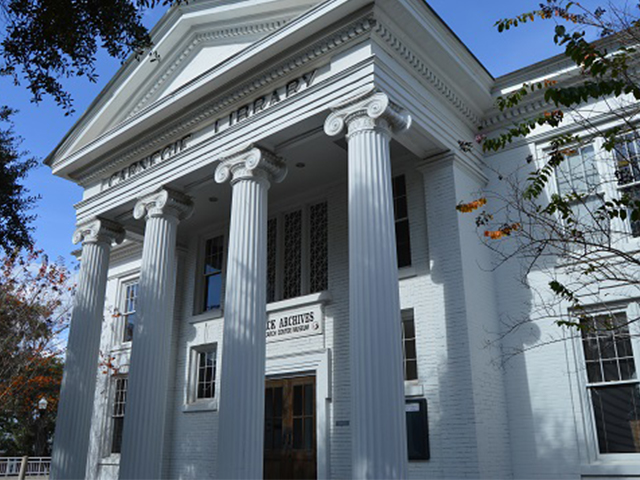
Although originally designated as a statewide facility, the Black Archives quickly evolved into an essential research facility for studies pertaining to African-American culture and history both locally and worldwide.
Since its inception, the Black Archives has been a crucial resource, serving individuals of diverse backgrounds, ages, and interests.
Every year, more than 160,000 people visit the center or participate in its numerous outreach programs.
These visitors come from all corners of the United States and around the world, including countries like Africa, Canada, England, Germany, Japan, Mexico, Russia, Switzerland, and the West Indies. -
By functioning both as a repository for archival records and a museum for historical regalia, the center continues to provide academic support to educational institutions, civic, political, religious, and social groups/ organizations, as well as public and private businesses. It has grown into a renowned research center regionally, nationally, and internationally.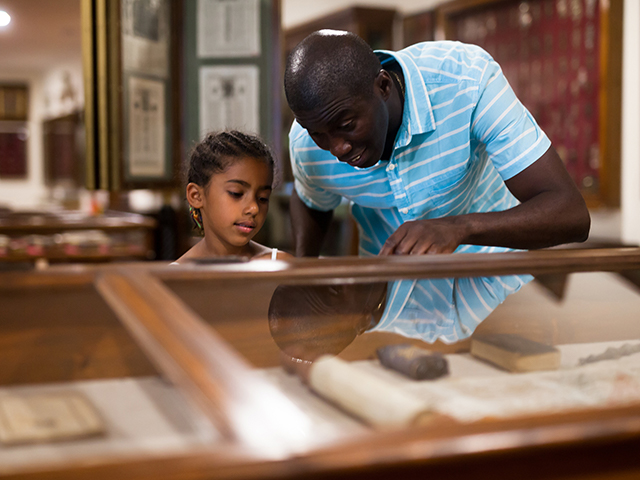
The center's holdings are a true testament to its dedication. With the generous contributions from the public, it now houses more than 500,000 individual archival records and over 5,000 museum artifacts. Among the Black Archives' significant achievements is its status as one of the only 10 black archives in the United States, standing as one of the largest repositories dedicated to African-American history and culture in the Southeast.




